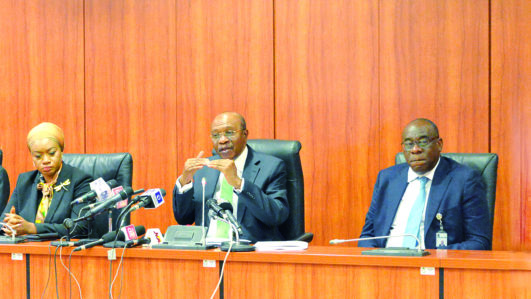Debt-for-climate swaps may reduce Nigeria’s debt by $3.7b yearly
Stakeholders stated in Abuja yesterday that debt-for-climate swaps might erase at least $22.2 billion from Nigeria’s debt over the next six years.
Nigeria’s overall debt was estimated to be around $108 billion by the Debt Management Office (DMO), at a time when the country is struggling with low revenue production, high inflation, poverty, and low capacity utilisation.
The participants, who gathered at an event hosted by the International Development Research Project Centre (IDRC) and the Centre for the Study of Economies of Africa (CSEA), emphasized that Nigeria should use the debt-for-climate-and-carbon tax to address the economic crisis and gender concerns.
Debt-for-climate swaps, according to Development Bank of Nigeria Plc’s Chief Economist Prof. Joseph Nnanna, might assist in financing environmental efforts while resolving Nigeria’s debt issue.
Nnanna said Nigeria is at a crossroads as it struggles with the twin problems of climate change and a rising debt profile. She added that while the debt crisis has limited the country’s financing options, it is still critical to give climate change mitigation measures top priority.
According to him, the group’s research demonstrates that Nigeria may use debt swaps to free up sizable resources, as much as $3.7 billion annually on average over the following six years.
According to what has been observed and published, swapping all of the eligible debt would earn an average of approximately $300 million yearly over the following six years. These funds can be used to fulfill our nationally determined contributions (NDC) and support environmentally friendly initiatives, like sustainable public transportation, for which the nation’s NDC, which was submitted in 2021, projects a financing requirement of $77 billion from 2021 to 2030 in order to meet the conditional goal of reducing current emissions by 50% before 2030.
In addition to calling for stability and economic progress, Nnanna emphasized the need for Nigeria to transition away from fossil fuels and toward greener sectors.
Nnanna stated that Nigeria’s future depends on balancing economic and debt management policies with gender and climate objectives in her speech on “Towards Reconciling Economic and Debt Management Policies with Gender and Climate Objectives in Nigeria.”
Nnanna, a keynote speaker at the event, suggested that a carbon price and the enforcement of current gender equality laws may better align with the nation’s ideals.
“The Nigerian government should make the creation of a thorough carbon price scheme a top priority. The Nigerian government should use the money it receives from carbon taxes and debt for climate swaps to encourage long-term green business endeavors.
“Therefore, data-driven decision-making, which has to do with the improvement of data collection systems to acquire gender statistics and sex-disaggregated data, is crucial and ought to be at the center of government policy. However, he recommended that the government start public awareness programs to inform Nigerians about the relevance of taking action to combat climate change, managing debt well, and the value of gender equality in society.
Although the idea of debt swaps is not brand-new, Chukwuka Onyekwena, chief executive of CSEA, claimed that its use in the context of climate and development is novel.
“Through strategic debt-for-development swaps, Nigeria can unlock additional resources of up to $11 billion. These funds, currently tied up in debt obligations, can be redirected towards climate-smart projects and sustainable development initiatives. We can invest in renewable energy projects, improve our infrastructure to withstand the impacts of climate change, and support local communities in adapting to a changing environment,” Onyekwena said.
He added that Nigeria stands to reduce its carbon emissions by up to 2.4 million tonnes annually and increase revenue estimated at N4.3 trillion for investment in infrastructure, education, healthcare, and other fields crucial to our country’s growth and development.

